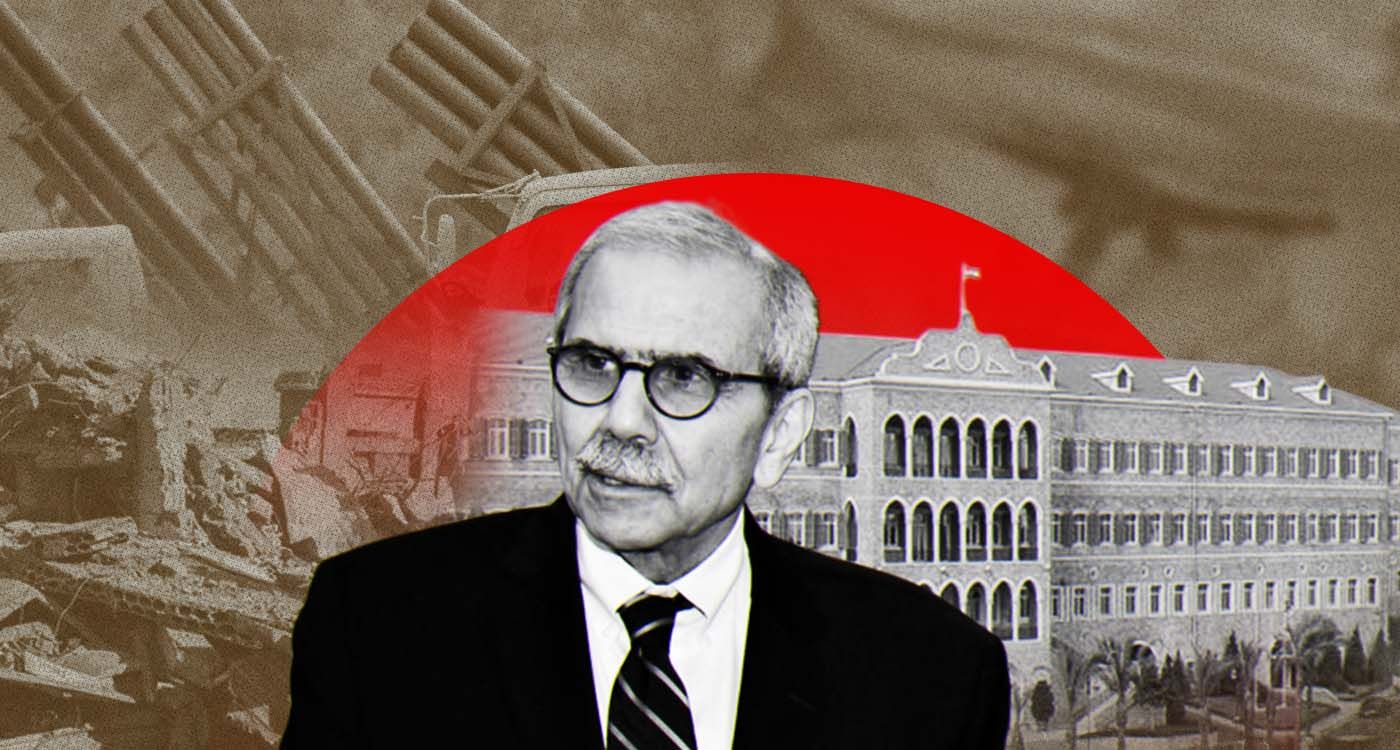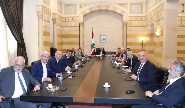
As Lebanon sinks deeper into the abyss with each passing day, Prime Minister Nawaf Salam’s government (with a few notable ministerial exceptions) clings to a political denial that is as irresponsible as it is dangerous. Rather than addressing the real threats jeopardizing the very existence of the Lebanese state, the executive branch seems more concerned with staging a hollow image of a vibrant, intellectual, cultural Lebanon. A façade that poorly masks the Cabinet’s total inaction on existential national issues: the proliferation of illegal arms, Hezbollah’s stranglehold on state sovereignty, the unchecked Palestinian militias, the absence of any diplomatic strategy for the country’s future, and the worsening security quagmire in the South.
While villages in South Lebanon and the Bekaa are bombed daily, while families flee from drones and shells, while the country’s borders dissolve into regional violence, images of a Prime Minister clapping and dancing at festivals are nothing short of a provocation. The contrast is unbearable. It reflects not a policy of resilience, but one of flight and escapism.
A Government That Dodges the Real Issues
The Salam government is not just ineffective—it is deliberately absent where it should be most present. Since taking office, it has launched no concrete initiative to address the country’s most urgent problems. Chief among them is the disarmament of Palestinian factions, which continue to operate freely in the camps, creating lawless zones where the Lebanese state has no authority. These groups, tied to regional agendas, are a permanent source of instability and fertile ground for extremism.
Worse still, the government remains hesitant—if not complicit—on the Hezbollah issue. The heavily armed Shiite militia imposes its military strategy on the entire country without consulting either the government or Parliament. Every escalation with Israel is decided in Haret Hreik, not at the Grand Serail. Salam’s government has not only abdicated its security role—it has handed over the monopoly of war to a politico-military group. This phenomenon has a name: the total collapse of state authority.
No Strategic Vision
And what of foreign relations? Not a single courageous speech on the need to initiate, at the very least, a national conversation about normalizing ties with Israel. No step toward a sustainable truce in the South. No proactive or bold initiative that might demonstrate to the United States a genuine willingness to move forward and join the new era of the emerging Middle East. At a time when even Saudi Arabia and Iran are engaging in dialogue, and when the UAE and Morocco have normalized relations with Tel Aviv, Beirut remains trapped in sterile dogma, displaying an unmatched level of political cowardice.
Rather than proposing a clear blueprint for state reconstruction, the Salam government is scattering its efforts across hollow campaigns, televised cultural events, and partnerships with international NGOs to “improve Lebanon’s image”—as ”if the country’s problem were merely cosmetic. It is not. Lebanon’s problems are structural, security-related, and political. And they require a sovereign state — not a public relations firm.
Culture as a Diversion
Of course, culture is an essential and defining element of Lebanese identity. It is honorable and necessary to celebrate art, music, and creativity. But when culture becomes the government’s sole terrain of expression, it turns into farce. In today’s context, these festivities are no longer acts of resistance—they are smokescreens. Collective distractions to hide the gaping void of governance.
While Nawaf Salam attends concerts and performances, Hezbollah is mobilizing fighters. While his ministers dance at festivals, Lebanese citizens ration electricity and water, struggle with unbearable living costs, and count the drones in the southern skies, losing all hope in a state that can protect them.
A Government of Aesthetics, Not Sovereignty
History will judge this period harshly—as one where a government, faced with danger, chose to look away. Faced with urgency, it chose inaction. Faced with war, it chose silence. And when presented with a golden opportunity — one that may never return — it chose cowardice.
Lebanon doesn’t need a government performing for the cameras. It needs a state. Real leadership. Vision. Sovereignty.
Nawaf Salam’s mandate could have been the beginning of an institutional rebirth. Sadly, it has become the reign of hollow aesthetics—a government that prefers to shine in salons and soirées rather than stand up and defend the nation.




Comments